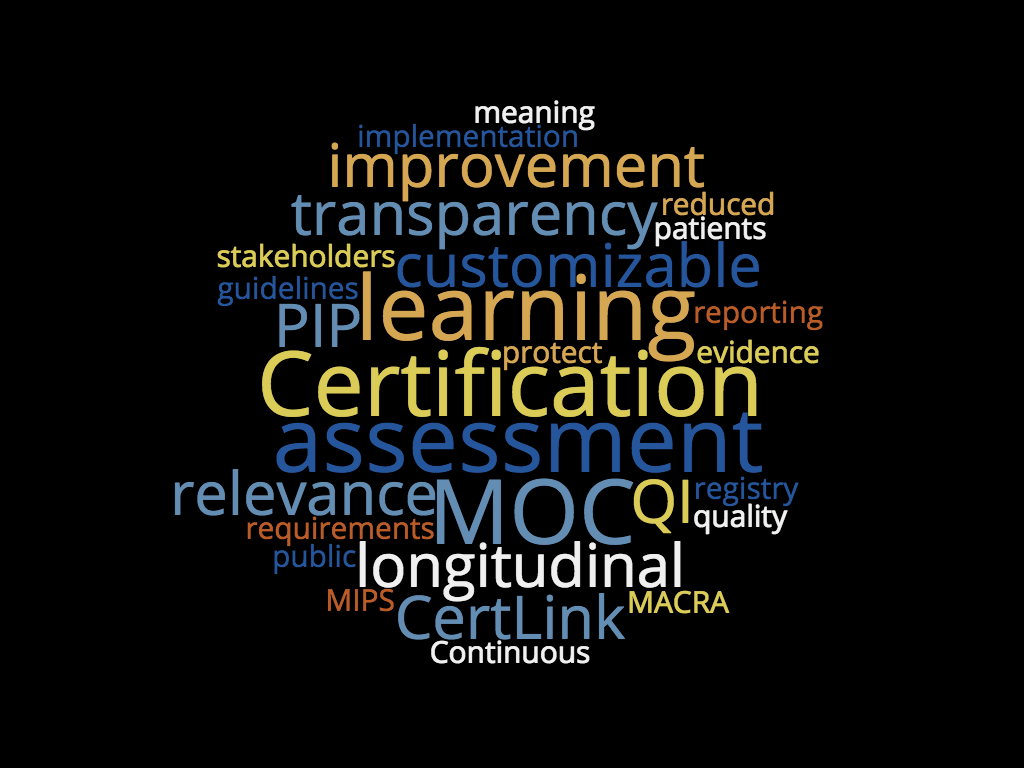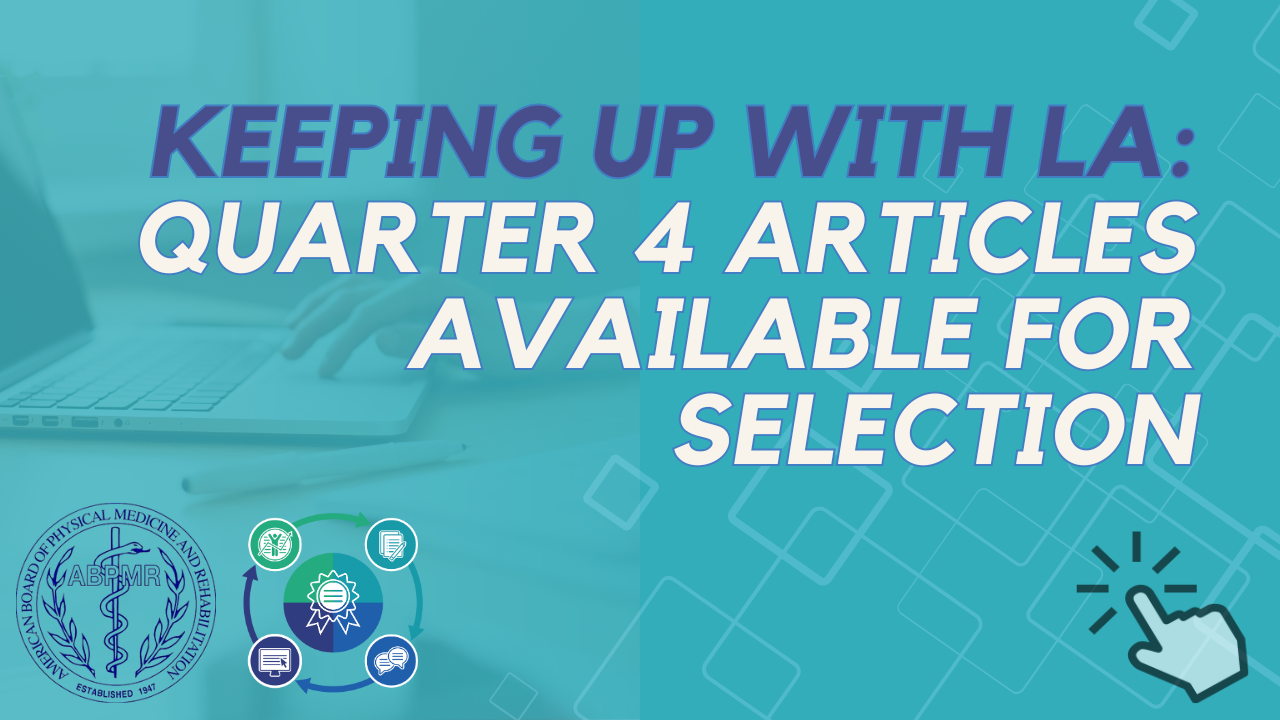LA-PMR
Further Thoughts on MOC, CertLink, and a More Continual Certification Process

By Board Chair Dr. Anthony Chiodo and ABPMR Executive Director Carolyn Kinney
As a follow-up to the recent announcement of an acceleration of our CertLink longitudinal assessment pilot timeline as part of a planned transition to Continuous Certification, we would like to offer further thoughts on the work that has been done on the current Maintenance of Certification (MOC) Program, what we’re measuring in the CertLink pilot, and the eventual shift to Continuous Certification.
CertLink: What We’re Measuring, What Longitudinal Assessment Offers
We are optimistic about the role longitudinal assessment will play in continuous certification. However, the ABPMR is committed to seeing the pilot through and completing an analysis of the data in order to demonstrate what CertLink does and what it does not do in a transparent way BEFORE implementation to the entire PM&R diplomate body. In addition, the ABPMR needs time to build the information services infrastructure and create detailed transition plans before implementation. The work required to make such an historic shift to Continuous Certification and CertLink takes time.
We are glad that various features of CertLink will address many of the issues our diplomates have asked us to address in recent years, including:
- An integrated customization system, which allows participants to weight their question content according to their practice or preference (increasing relevance and meaning)
- No need to purchase study tools, or to take time away from practice prepare or take the secure exam, reducing overall cost of maintaining certification
- The attempt to conclude the CertLink pilot ahead of schedule for more rapid implementation to the field
Thoughts on the Role of Quality Improvement in Certification
Over the last few years, diplomates have also been asking for changes to MOC Part IV, the Practice Improvement Project. Here is our perspective on MOC Part IV:
- The ABPMR’s primary mission is to protect the public by offering a certification process that demonstrates physicians are current in their knowledge and skills and are committed to high quality medical care.
- Quality improvement as a part of medicine is not going away. MACRA and MIPS have demonstrated that reimbursement will be increasingly tied to quality markers, and the ABPMR endeavors to help you meet those requirements. Quality improvement efforts allow us as physiatrists to unequivocally demonstrate to the public our commitment to make health care safer and of higher quality. We need to do a better job in our publications and national meetings to demonstrate through presentations/best practices in using Part IV to make a difference in our patients’ lives.
- Based on guidelines from the American Board of Medical Specialties (ABMS), evidence of improvement in medical practice is part of the board’s responsibility to the public. Improvement in medical practice (MOC Part IV) is a requirement for all ABMS member boards.
Over the last several years, the ABPMR has enhanced its MOC Part IV offerings to better align with what physiatrists are doing in this domain. We continue to actively engage the AAPM&R, AAP, and diplomates directly on how we can do this better, more inclusively, and with less burden. We have invested staff and volunteer time, energy, and resources to enhance this area and will continue to do so. Areas of ongoing activity include using CertLink as a self-improvement tool, using registry data for Part IV activities, and developing Part IV projects in up to date topics such as opioid management and physician wellness.
The Future of Certification: Integration of Requirements, Updating Guidelines
We actively seek opportunities for MOC/Continuous Certification activities to also help diplomates meet the mandated reporting requirements they are facing elsewhere, and we are also looking forward to seeing the results of the ABMS Vision Initiative, which is evaluating current MOC guidelines for all the specialty boards. We expect this report in early to mid 2019 and anticipate it will include recommendations for increasing the value of MOC/Continuous Certification for all stakeholders.
The ABPMR Board of Directors always welcomes diplomate feedback about these issues. We hope our diplomates agree that our recent announcement demonstrates the actions the ABPMR is taking to increase the relevance, meaning, and value of certification while decreasing financial burden, and we look forward to sharing more details with our diplomates in the spring of 2019.
Sincerely, Anthony Chiodo, MD, Chair, ABPMR Board of Directors
Carolyn Kinney, MD, Executive Director, ABPMR



